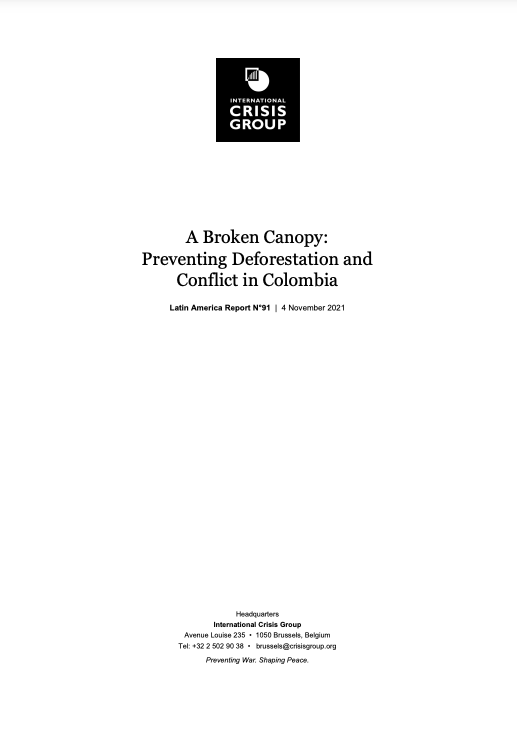Resource information
In the five years following its historic 2016 peace accord, Colombia has seen a surge of forest razing and land clearance amid continuing unrest in the countryside. The rate of tree loss, which greatly lowers the country’s chances of meeting its zerodeforestation goal by 2030, is tied to conflict and violence. These ties are complex. Deforestation began to rise soon after the Revolutionary Armed Forces of Colombia (FARC), which had operated mostly from rural areas, declared a ceasefire in December 2014. It then gathered steam after the 2016 accord was signed. The rebels’ departure from their strongholds provided an opportunity for other insurgencies and organised crime to assert control. With state authority in the countryside still feeble, those groups pushed back the forest to expand enterprises like coca growing, cattle ranching, illegal gold mining and logging, sometimes working with legal businesses. To arrest the damage, Bogotá should fix its approach to prosecuting environmental crime, implement peace accord commitments relating to the environment and urgently bolster its natural resource management systems.


